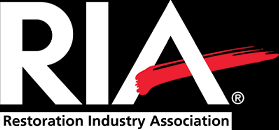COVID Transmission Information
What works in the fight against Covid transmission?
Going on our 6th month of dealing with the novel corona virus, there still does not seem to be a consensus among Americans about how the virus spreads and the efficacy of different measures to slow its spread. We at ECS hope to educate the public about the spread of the virus and steps you can take to avoid its spread.
Contact and droplet transmission
Transmission can occur through respiratory or saliva droplets when coming in close contact for prolonged periods with infected persons. Sneezing, coughing, talking, and even singing can cause droplet transmission from one person to the next. The CDC and WHO recommend wearing masks and keeping a safe social distance of 6 feet to limit the spread through droplet transmission. Other helpful measures include frequent hand washing and avoiding touching your face.
Surface transmission
Surfaces can become contaminated when an infected person projects droplets onto them. The virus can live on hard surfaces from cardboard to plastic to metal and can survive up to three days. Good hygiene practices to reduce infectivity include cleaning dirty surfaces and then applying a disinfectant to kill the virus, especially in high traffic areas
Food and water transmission
The virus is not believed to be transmitted through food and water. It is always good practice to rinse raw food products with water prior to ingestion but no evidence currently exists that the virus can be spread through food and water.
Airborne transmission
Respiratory droplets can become aerosols and travel at rates beyond six feet. While the CDC and WHO have both stated that more evidence is required to declare it as a definitive method of transmission, there are mounting instances where it is believed that airborne transmission have at least played a role in the spread of the virus. Poorly ventilated areas combined with dense crowds may contribute to the spread of the virus. Practices to overcome airborne transmission include wearing masks and keeping safe social distance as well as maintaining HVAC equipment. Additionally, keeping duct work free of debris and applying a disinfecting agent can help control the spread of aerosols.



